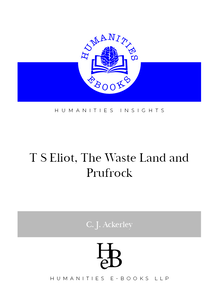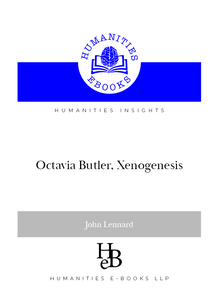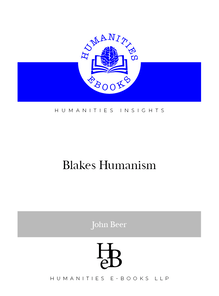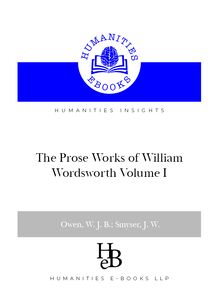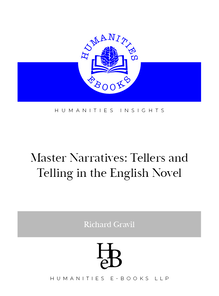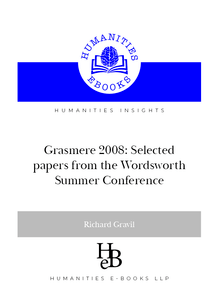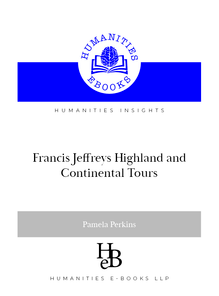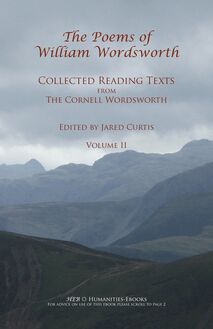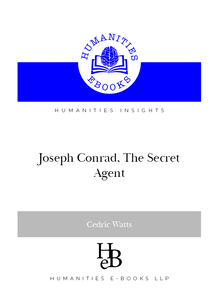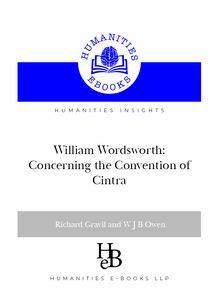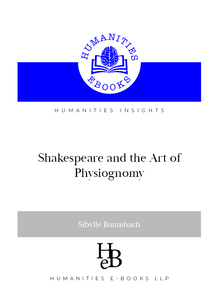-
 Univers
Univers
-
 Ebooks
Ebooks
-
 Livres audio
Livres audio
-
 Presse
Presse
-
 Podcasts
Podcasts
-
 BD
BD
-
 Documents
Documents
-
- Cours
- Révisions
- Ressources pédagogiques
- Sciences de l’éducation
- Manuels scolaires
- Langues
- Travaux de classe
- Annales de BEP
- Etudes supérieures
- Maternelle et primaire
- Fiches de lecture
- Orientation scolaire
- Méthodologie
- Corrigés de devoir
- Annales d’examens et concours
- Annales du bac
- Annales du brevet
- Rapports de stage
La lecture à portée de main
83 pages
English
Découvre YouScribe en t'inscrivant gratuitement
Je m'inscrisDécouvre YouScribe en t'inscrivant gratuitement
Je m'inscris
Obtenez un accès à la bibliothèque pour le consulter en ligne
En savoir plus
En savoir plus
83 pages
English
Obtenez un accès à la bibliothèque pour le consulter en ligne
En savoir plus
En savoir plus

Description
This critical and contextual study sheds new light on Conrad's topical novel of espionage and terrorism.
Sujets
Informations
| Publié par | Humanities eBooks |
| Date de parution | 11 janvier 2021 |
| Nombre de lectures | 0 |
| EAN13 | 9781847600325 |
| Langue | English |
Informations légales : prix de location à la page 0,0200€. Cette information est donnée uniquement à titre indicatif conformément à la législation en vigueur.
Extrait
Literature Insights General Editor: Charles Moseley
Running Head 1
Joseph Conrad:‘The Secret Agent’
byCedric Watts
‘There had been moments … when I was an extreme revolutionist.’.
http//www.humanities-ebooks.co.uk For advice on use of this ebook please scroll to page 2
Publication Data
© Cedric Watts, 2007
he Autor as asserted is rigt to be identified as te autor of tis Work in accord-ance wit te Copyrigt, Designs and Patents Act 1988.
Publised byHumanitiesEbooks.co.uk Tirril Hall, Tirril, Penrit CA10 2JE
Reading Options
*To use te navigation tools, te searc facility, and oter features of te Adobe toolbar, tis Ebook sould be read in default view. *To navigate troug te contents use te yperlinked ‘Bookmarks’ at te left of te screen. *To searc, expand te searc column at te rigt of te screen or click on te bin-ocular symbol in te toolbar. *For ease of reading, use <CTRL+L> to enlarge te page to full screen *Use <Esc> to return to te full menu. *Hyperlinks appear in Blue Underlined Text.
Licence and permissions
Purcasing tis book licenses you to read tis work on-screen and to print one copy for your own use. Copy and paste functions are disabled. No part of tis publication may be oterwise reproduced or transmitted or distributed witout te prior written permission of bot te copyrigt owner and te publiser. Making or distributing copies of tis book constitutes copyrigt infringement and would be liable to prosecution. hank you for respecting te rigts of te autor.
ISBN 978-1-84760-032-5
Joseph Conrad: ‘The Secret Agen
Cedric Watts
Bibliographical Entry:
t
’
Watts, Cedric.Joseph Conrad: ‘The Secret Agent’. Literature Insights. Tirril: Humanities-Ebooks, 2007
A Note on the Author
After service in the Royal Navy, Cedric Watts entered Cambridge University and took his BA (Class I, English), MA and PhD there. He has written or edited forty-eight critical and scholarly books (among themA Preface to ConradandThe Decep-tive Text), and is known internationally as an expert on William Shakespeare, R. B. Cunninghame Graham and Joseph Conrad. He is currently Research Professor of English at Sussex University.
Contents
A Note on the Author
1. Editorial Note, Acknowledgements and Abbreviations 2. Biographical Conrad’s Progress 3. The Composition ofThe Secret Agentand its Modes of Publication 3.1. Composition 3.2. The Serial and the First Book Edition 3.3. The Stage Version 4. The Opening, the Plot and the Narration 4.1. The Title, Sub-Title and Dedication 4.2. A Plot-Summary and Its Limitations 4.3. The Ironic Method 4.4. The Character of the Narrator 5. Themes, Sources and Contexts 5.1. Preamble 5.2. Time 5.3. The Greenwich Bomb, Anarchists, Fenians and Jews 5.4. Lavater, Lombroso, Physiognomy and Criminology 5.5. Political Contexts 6. Literary Inuences and Analogues 6.1. Dickens 6.2. Naturalism, Zola and Ibsen 6.3. Terrorist Fiction and The Premier and the Painter 7. Analyses 7.1. Temporalities 7.2. Mind, Matter and Topography 7.3. Aspects of Characterisation 8. Critical Survey 8.1. Contemporaneous Responses 8.2. Subsequent Responses 9. Conclusion 10. Bibliography
1. Editorial Note, Acknowledgements and Abbreviations
Unless otherwise speciîed, quotations from the book version ofThe Secret Agent are taken from my Everyman paperback edition. This represents the text of the îrst British edition of the novel. From time to time, my ensuing commentary draws on the introduction to that Everyman edition and to parts of my bookThe Deceptive Text. Works which proved very useful during the preparation of this Ebook were Norman Sherry’sConrad’s Western Worldand the Cambridge edition ofThe Secret Agent. The following abbreviations are used:
CL:Collected Letters of Joseph Conrad The , ed. Frederick R. Karl, Laurence Davieset al. Cambridge: Cambridge University Press. Vol. 1, 1983; Vol. 2, 1986; Vol. 3, 1988; Vol. 4, 1990; Vol. 5, 1996; Vol. 6, 2002; Vol. 7, 2005. CSAConrad:: Joseph The Secret Agent: A Simple Tale, ed. Bruce Harkness and S. W. Reid. Cambridge: Cambridge University Press, 1971. CWW:Norman Sherry:Conrad’s Western World. London: Cambridge University Press, 1971. SA: Joseph Conrad:The Secret Agent: A Simple Tale, ed. Cedric Watts. London: Orion Dent Everyman, 1997.
In quotations, a row of three points (or of four points to include a full stop) indicates an ellipsis already present in the quoted matter, whereas a row enclosed in square brackets indicates an omission that I have made. Square brackets also enclose edito-rial insertions.
2. Biographical
Conrad’s Progress
Joseph Conrad, originally Józef Teodor Konrad Nalecz Korzeniowski, was born on 3 December 1857 into a Poland which had virtually disappeared from the map of Europe. In a series of ‘partitions’ at the end of the eighteenth century, the country had been annexed by Russia from the east, Prussia from the west, and Austria-Hungary from the south-west. Conrad was raised in the eastern part of Poland, the Ukraine, which was controlled by the Russians. His parents, patriotic members of the land-owning gentry-cum-nobility, conspired against the Russian overlords, were arrested, found guilty of subversive activities, and exiled to the remote province of Vologda. Their four-year-old son accompanied them on the dreary journey into exile. Partly as a consequence of their privations, both parents died young, leaving Conrad an orphan at the age of eleven. (An uncle became his guardian.) Thus, even as a child, Conrad had gained experience of the power of imperialism, of the fact that loyalty to one cause may resemble treachery to another, and of the ironic interconnection of solidarity with isolation. It is not entirely surprising, then, that he eventually became the most intelligent political novelist of his generation. When he was sixteen, he left Poland for Marseille in the south of France. He lived a bohemian life but also worked among seamen and voyaged to the West Indies in French ships. On one occasion when ashore, he gambled and lost some borrowed money (his uncle reported) at Monte Carlo. He returned to his lodgings and attempted suicide: the bullet from his pistol narrowly missed his heart. In 1878 he entered the British Merchant Navy, and during the next sixteen years made many voyages in sailing-ships and steam-ships, qualifying as second mate, îrst mate and eventually as captain. He became a British citizen in 1886, and made London his base between voyages which took him to Bombay, Bangkok, the East Indies, Australia and the Congo. These voyages and the exotic landfalls, the romance and the disillusionments of distant journeys, were to provide the material for much of his eventual literary output. So, too, would the contrast between the shipboard community and the urban masses.
The Secret Agent
In Poland he had known the bitter life of a nation subjected to imperialism; but in England he knew the life of a nation at the height of her imperial power, proudly ruling the greatest empire the world had ever known. He could respond to the glam-our, the Titanism and the hubris of the imperial endeavour, even while his shrewd scepticism and his patrician distaste for commercialism alerted him to its hypocrisies and its acquisitive rivalries. Marlow inHeart of Darknesswould declare:
‘The conquest of the earth, which mostly means the taking it away from those who have a different complexion or slightly atter noses than ourselves, is not a pretty thing when you look into it too much.’
Conrad’s friends would include such radical critics of imperialism and capitalism as Cunninghame Graham (an associate of Friedrich Engels) and Edward Garnett (friend to anarchists). In any case, his encounters abroad with a diversity of indigenous peo-ples provoked a questioning of European assumptions. What were the bases of civi-lisation and what was the true nature of ‘progress’? Were there any essential differ-ences between the Europeans and the people they sought to colonise? Stein, the wise observer in Conrad’sLord Jim, would even argue that human beings were unwanted colonisers of the very planet:
‘Sometimes it seems to me that man is come where he is not wanted, where there is no place for him; for if not, why should he want all the place? Why should he run about here and there making a great noise about himself, talking about the stars, disturbing the blades of grass?’
As he travelled the world, Conrad had gained exceptional linguistic experience. While his native language was Polish, he had lived in a region where the overlords spoke Russian and the peasants Ukrainian. His father, Apollo Korzeniowski, was not only a patriotic poet and playwright but also a translator of English and French texts (by Shakespeare, de Vigny and Victor Hugo). Conrad’s own second language was widely-ranging French: the courtly French of civilised address, the literary French of Flaubert, Maupassant and Anatole France, and the vernacular of Mediterranean seamen and stevedores. His English was acquired partly from tutors, largely from his voracious reading (of Shakespeare, Byron, Carlyle, Dickens and many others), and partly from fellow seamen. When exploring the Congo in 1890, Conrad kept his journal in English. If he had gambled and lost at Monte Carlo, it might have seemed to Conrad in the eighteen-nineties that he had also gambled and lost as a seaman. As steam gradu-ally superseded sail, and as ships became larger and more efîcient, it became harder
-
 Univers
Univers
-
 Ebooks
Ebooks
-
 Livres audio
Livres audio
-
 Presse
Presse
-
 Podcasts
Podcasts
-
 BD
BD
-
 Documents
Documents
-
Jeunesse
-
Littérature
-
Ressources professionnelles
-
Santé et bien-être
-
Savoirs
-
Education
-
Loisirs et hobbies
-
Art, musique et cinéma
-
Actualité et débat de société
-
Jeunesse
-
Littérature
-
Ressources professionnelles
-
Santé et bien-être
-
Savoirs
-
Education
-
Loisirs et hobbies
-
Art, musique et cinéma
-
Actualité et débat de société
-
Actualités
-
Lifestyle
-
Presse jeunesse
-
Presse professionnelle
-
Pratique
-
Presse sportive
-
Presse internationale
-
Culture & Médias
-
Action et Aventures
-
Science-fiction et Fantasy
-
Société
-
Jeunesse
-
Littérature
-
Ressources professionnelles
-
Santé et bien-être
-
Savoirs
-
Education
-
Loisirs et hobbies
-
Art, musique et cinéma
-
Actualité et débat de société
- Cours
- Révisions
- Ressources pédagogiques
- Sciences de l’éducation
- Manuels scolaires
- Langues
- Travaux de classe
- Annales de BEP
- Etudes supérieures
- Maternelle et primaire
- Fiches de lecture
- Orientation scolaire
- Méthodologie
- Corrigés de devoir
- Annales d’examens et concours
- Annales du bac
- Annales du brevet
- Rapports de stage
Signaler un problème
YouScribe
Le catalogue
Le service
© 2010-2024 YouScribe
